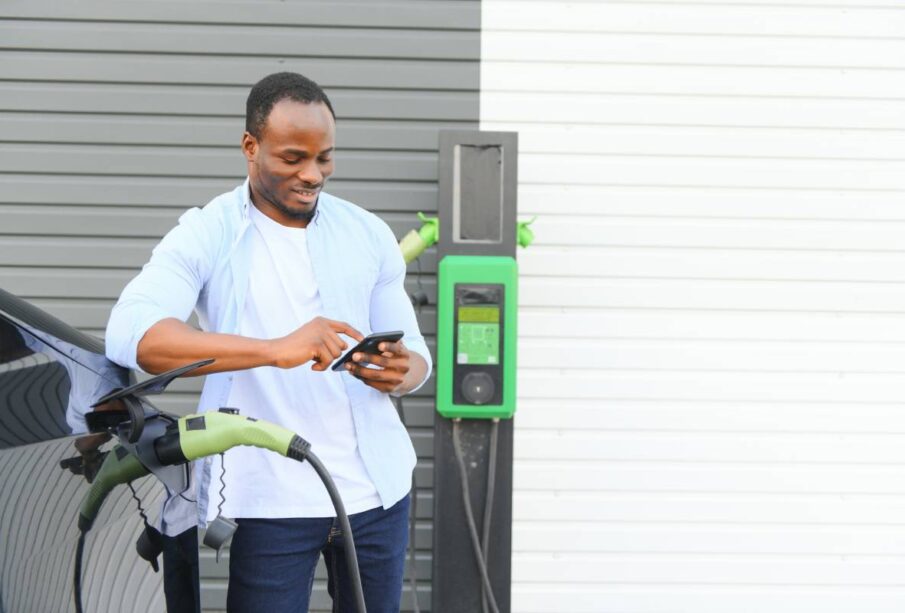What You Need to Know Before Installing a Home EV Charging Station

As electric vehicles (EVs) continue to gain traction worldwide, more drivers are recognising the convenience and long-term value of having a home charging station. Public charging stations are becoming more available, but they can’t beat the daily reliability and comfort offered by charging your EV right in your garage or driveway.
A home EV charger not only means you can avoid waiting times at public stations, but it also ensures your vehicle is fully charged each morning without fail. It offers tangible benefits such as reduced charging costs, especially if paired with off-peak electricity rates or solar energy.
However, before jumping into the installation process, it’s essential to understand the key factors involved. From electrical requirements and installation costs to choosing the right charger type and ensuring compatibility with your home’s power system, there are several important considerations. Being informed now can save time, money, and potential safety issues down the road.
Whether you’re preparing to purchase your first electric car or looking to upgrade from a basic Level 1 plug-in charger to a more efficient Level 2 system, this guide will walk you through everything you need to know before installing a home EV charging station.
Types of Home EV Chargers
There are three levels of EV chargers, but only two are typically relevant for home installation:
Level 1 Charger (Standard Plug-In)
-
Uses a standard 120V household outlet.
-
Comes included with most EVs.
-
Delivers ~3-5 miles of range per hour.
-
Best for plug-in hybrids or those who drive short distances daily.
-
No professional installation usually needed but slow for full EVs.
Level 2 Charger (Recommended for Home)
-
Requires a 240V power supply (similar to a clothes dryer).
-
Adds ~25-40 miles of range per hour depending on charger capacity and vehicle.
-
Requires professional installation by a certified electrician.
-
Ideal for full EV owners and those needing faster charging.
-
Can be wall-mounted indoors or outdoors, depending on space and weatherproofing.
Fast Charging (Level 3)
-
Available only at commercial/public stations due to high power requirements.
-
Not suitable for residential installation.
Check Your Home’s Electrical Capacity
Installing a Level 2 charger demands a dedicated 240V circuit, which may require an electrical panel upgrade if your home lacks capacity. A licensed electrician can assess your panel to determine if:
-
You have enough amperage available.
-
A new circuit breaker is needed.
-
The existing wiring supports the load.
Older homes or those with limited electrical infrastructure often need upgrades. While this adds upfront cost, it ensures safe and efficient charging.
Location and Setup Considerations
Deciding where to install your EV charger is crucial for safety, convenience, and cost-efficiency.
Consider the following:
-
Distance from the power source: The further the charger from your electrical panel, the higher the installation cost.
-
Indoor vs. Outdoor: Garages are ideal, but many chargers are rated for outdoor use—just make sure it’s weatherproof.
-
Cable length: Standard cables are 15-25 feet long. Make sure it comfortably reaches your vehicle’s charge port.
-
Future-proofing: If you’re planning to buy a second EV or sell your home, the right charger adds long-term value.
Permits and Local Regulations
Depending on your jurisdiction, you may need a permit to install a home EV charging station. Some areas have strict electrical codes that require inspection and approval after installation. Hiring a certified professional ensures compliance with local building and safety standards, and can prevent costly future adjustments.
Additionally, if you live in a strata, body corporate, or apartment building, you’ll likely need approval from the building management before installation.
Costs Involved in Installation
The total cost of installing a Level 2 EV home charging station varies depending on:
-
Charger unit: Basic units start around $600; smart chargers with Wi-Fi, energy monitoring, and schedule settings cost $900 to $1,500+.
-
Installation: Ranges from $400 to over $2,000, depending on wiring, panel upgrades, and where the charger is installed.
-
Additional parts: Mounting hardware, weatherproofing materials, cable management tools, etc.
Some governments, energy providers, or car manufacturers offer rebates or incentives to offset costs. Be sure to check for any available grants.
Smart Charger vs. Basic Charger
A smart charger offers features like:
-
Wi-Fi connectivity
-
Energy usage tracking
-
Scheduled charging (to charge when electricity is cheapest)
-
Remote monitoring via mobile app
-
Load balancing (ideal if you own solar panels or multiple EVs)
Although more expensive, smart chargers help you save on electricity costs over time and provide more control.
Electricity Tariffs and Solar Compatibility
Charging at home increases your power bill, so understanding your electricity tariff is key.
-
Time-of-use tariffs: You pay less during off-peak hours. Smart chargers make it easy to schedule charging overnight.
-
Flat-rate tariffs: You pay the same price per unit regardless of time.
-
Solar panels: If you have a solar PV system, consider charging your EV during the day to make the most of free energy. Some chargers integrate seamlessly with solar systems, allowing users to prioritise solar over grid energy.
Safety Features to Look For
A reliable EV charger should have:
-
Overcurrent and surge protection
-
Ground fault detection
-
Thermal monitoring
-
Weatherproof rating (for outdoor units)
Never attempt a DIY installation—improper wiring can lead to fire hazards or electrical injury.
Warranty and After-Sales Support
Choose a charger backed by a strong warranty (typically 3-5 years). Brands that offer local service and support are more reliable in case of technical issues. Some installers also provide workmanship guarantees for added peace of mind.
Making It a Smart Investment
Installing an EV charger isn’t just about convenience—it can also add value to your home. As more buyers look for energy-efficient and EV-ready properties, having a compliant and high-quality charger is a major selling point.
Who Should Install Your EV Charger?
Only hire a licensed, experienced electrician or an EV charging specialist. Working with experts ensures:
-
Compliance with safety standards
-
Correct evaluation of your electrical needs
-
Future-proof wiring
-
Guidance on tariffs, charger models, and smart features
Final Thoughts
A home EV charging station is a smart investment that enhances convenience, boosts property value, and supports your shift to cleaner transport. However, the installation isn’t as simple as plugging in a device. Careful planning, professional installation, and choosing the right charger all contribute to a safe, efficient, and long-lasting setup.
From understanding power requirements to weighing up cost and features, taking the time to evaluate your options will save you from costly mistakes and maximise your long-term benefits.
If you’re ready to explore installation options or seek expert advice, it’s worth reaching out to trusted specialists who can guide you from start to finish. One such provider is Reds Power Solutions, offering top-quality EV charger installations tailored to your home’s electrical infrastructure and your driving needs.







